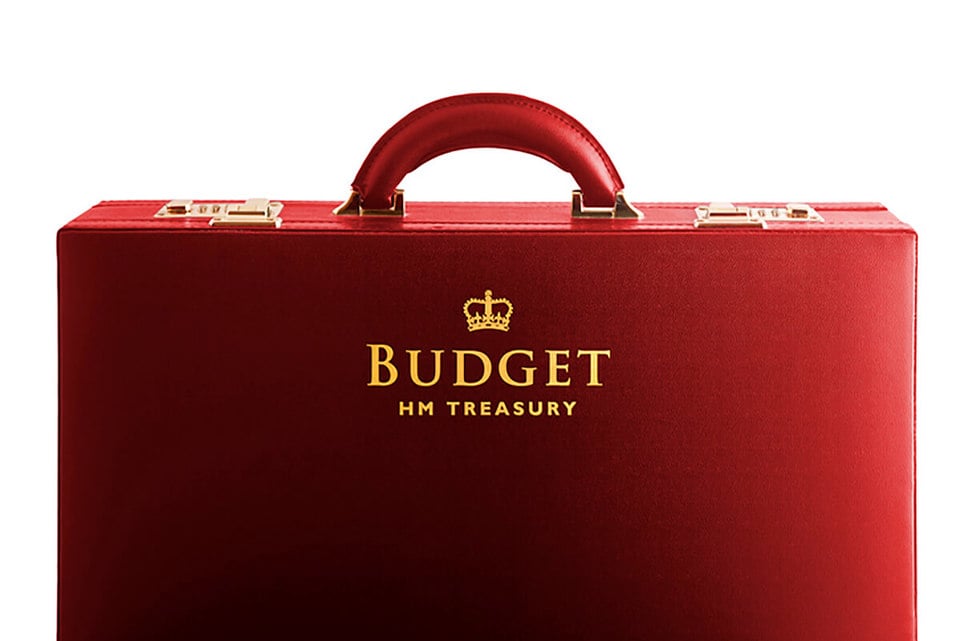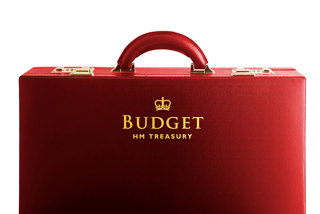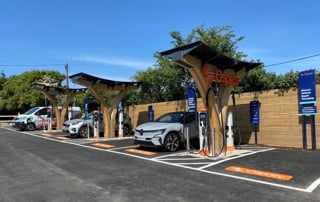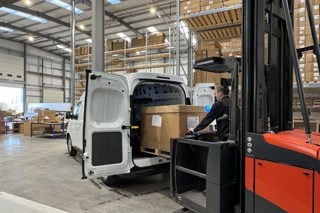The Chancellor is being urged to freeze fuel duty and VED, and tackle issues around electric vehicle (EV) charging infrastructure ahead of the Budget tomorrow.
Fuel duty is of particular concern after, following the Autumn Statement in November, the Office for Budget Responsibility (OBR) said fleets could be hit with a 23% hike in fuel duty at the end of the month.
With fleets facing record pump prices at the start of last year, fuel duty was cut by 5ppl in by the then Chancellor, Rishi Sunak, after being frozen at 57.95ppl since 2011.
The reduction in fuel duty, however, was a temporary measure and is due to end this spring. The OBR estimates that the record cash increase would equate to an additional 12p per litre (ppl) on petrol and diesel, swelling Treasury coffers with an additional £5.7 billion in taxes.
The AA wants the Chancellor to retain the current fuel duty freeze for another 12 months. AA president Edmund King said: “It would be detrimental to put unnecessary strain on people by increasing fuel duty.
“Most goods and services are transported by road, so waving through higher pump prices onto logistics firms as well as the driving public will hurt everyone.
“Our message to the Chancellor is that hiking fuel duty will simply fuel inflation, so it is imperative that he keeps the fuel duty freeze for another year.”
Gordon Balmer, executive director of the Petrol Retailers Association (PRA), also called on the Chancellor to do all he can to keep pump prices as low as possible.
“This means continuing the fuel duty freeze and making the 5ppl cut permanent,” he said.
However, Paul Holland, MD of UK Fleet at Allstar, said: “Given that both wholesale fuel costs and prices at the pump appear to be returning to normal after a year of significant volatility, there may be an economic case for reversing the 5p duty benefit from last year and this is something drivers and fleets will have to be ready for.”
Focus on EV charging
Maria Bengtsson, electric vehicle lead at EY in the UK, wants continued and increased focus on EV charging infrastructure.
“Whilst the government has previously announced several funds to support the roll out of infrastructure, these have not yet had the intended effect on the pace of the roll out,” she claimed.
“Given ongoing infrastructure challenges, particularly in remote areas, and the significant reliance that EV charging infrastructure currently has on private investment, further commitment in this area could only be a positive for the automotive sector and its endeavours to help the UK reach its sustainability goals.”
Like many in the fleet industry and beyond, Bengtsson says that the Chancellor could also look to reduce the running costs for EVs by aligning the VAT rate on public EV chargers with the lower rate that applies to power from home chargers, as recommended by Chris Skidmore in the Net Zero review.
Aaron Jarvis, associate vice president for sales and business development at Geotab, said: “Bringing VAT for public charging in line with home charging will help EV drivers who rely on public charging networks, and help to reinvigorate the market ahead of its planned 2030 transition timeframe.”
New ‘green’ super deduction
Eight trade associations have written to the Chancellor calling for a new ‘green’ super-deduction aimed at SMEs to replace the existing programme when it comes to an end in March.
The original super-deduction was introduced in 2021, with fleet operators buying vans and trucks able to benefit from the tax relief.
The Government said that companies investing in qualifying new plant and machinery, from April 1, 2021, to March 31, 2023, would be able to claim a 130% super-deduction capital allowance, or a 50% first-year allowance (FYA) for qualifying special rate assets.
Expenditure qualifying for the super-deduction would have ordinarily been relieved at the main rate writing down allowance of 18%, while the special rate writing down allowance was 6%.
The Chancellor is being urged to introduce new tax relief for small and medium-sized enterprises (SMEs) renting and leasing vehicles, ahead of the Budget.
Toby Poston, director of corporate affairs at the BVRLA, said: “The leasing and rental exclusion in the current regime has created an unfair playing field that is hindering SMEs from making the leap to zero emission commercial vehicles.
“The enhanced allowances we’re recommending would boost business investment in zero emission technology and support the Government’s ambitious phase-out targets.”
The BVRLA is also calling for a freeze in VED rates, the removal of charging VAT disparity and to provide foresight on road pricing.
Poston added: “Last autumn, the Government maintained momentum in fleet decarbonisation by delivering greater certainty on supportive benefit-in-kind tax rates.”
“Now we are asking them to apply the same logic to other elements of the motoring tax regime. Together, these measures would provide a wider boost to business investment in zero emission vehicles and infrastructure.”
Barney Goffer, UK product manager at Teletrac Navman UK, concluded: “As businesses face increasing pressure to actively plan and invest for a net zero target future, the finer details of the Spring Statement could mean the difference between those who can, and those who struggle to stay afloat.
“For fleet operators specifically, the measures announced could impact their strategy to switch from ICE to EVs.
“Tax incentives go a long way to making these investments possible for corporations who know that investment is needed for them to develop and gain strength.”
The Chancellor will deliver the Budget on Wednesday, March 15, at around 12.30pm.




















Login to comment
Comments
No comments have been made yet.